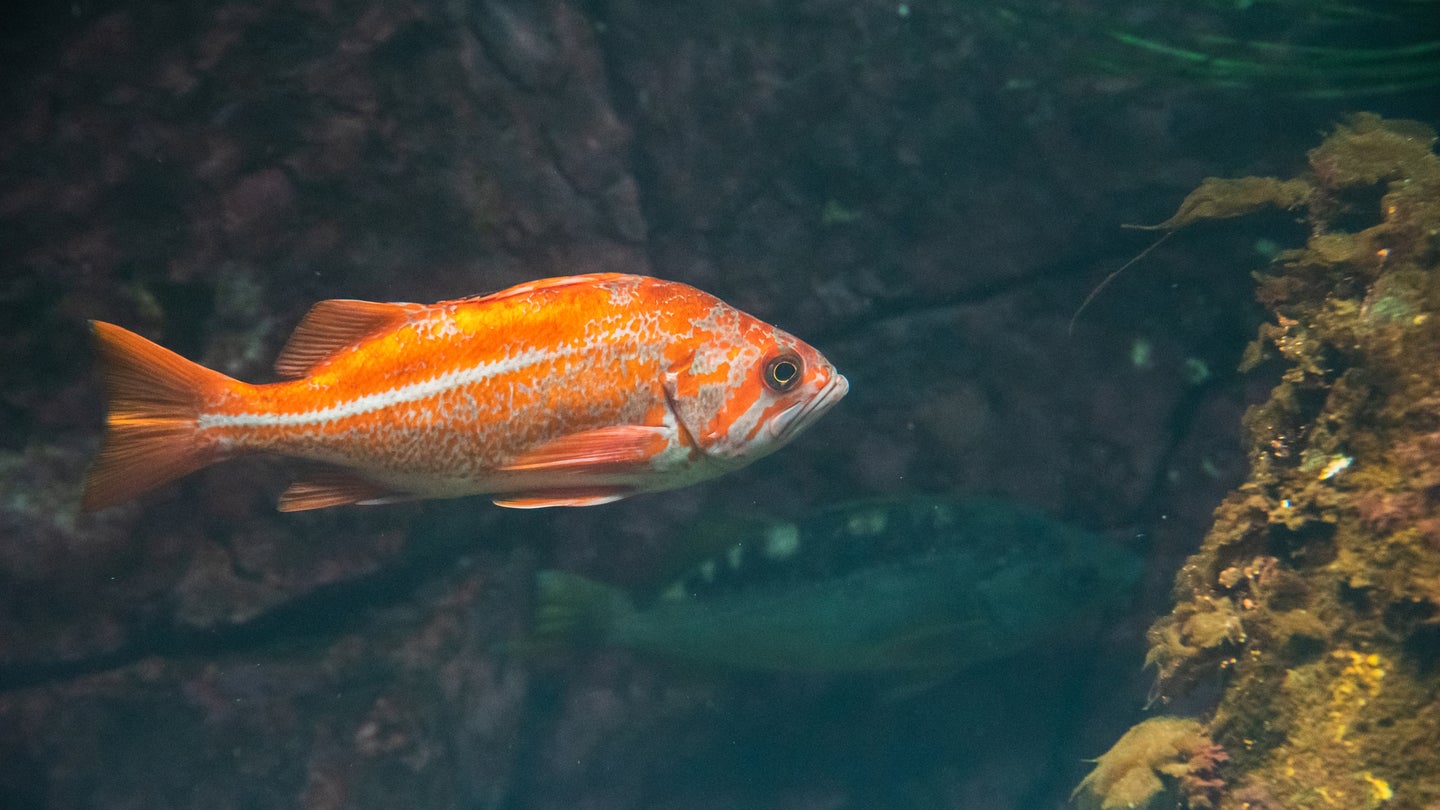Plunging into the genes of the humble rockfish could help us treat age-related diseases.
By Jocelyn Solis-Moreira – Popular Science
The lifespan of humans has grown in the past two centuries from an average of 30 to 72 years old. Despite this impressive change in health, our longevity pales in comparison to the rockfish. Rockfish can live over 100 years on the seafloor of shallow waters, spending most of their days hiding under rocks. (Some have been reported to live over 200 years). The secret to rockfish longevity is more complex than stumbling on an underwater fountain of youth. Geneticists at Harvard propose that the answer could lie with how they control their genes.
A new study published today in Science Advances found that rockfishes have a complex genetic network that likely influences the species’ length of life. These same genes also seem to be found in humans. “The way fish are regulating traits like longevity is actually very similar to how mammals are regulating longevity,” says lead study author Stephen Treaster, a postdoctoral research scientist at Boston Children’s Hospital and Harvard Medical School. Understanding these genetic variations involved in longevity in animals like a rockfish could one day help with treating age-related diseases in humans.




